10 Best States To Start a Business in Nigeria in 2024 and Why
As we head into 2024, Legit.ng has compiled a list of 10 states to consider when starting a business and the targeted cities.
The states selected were ranked using key business metrics such as the availability of government incentives, grants, or programs.
Also, the possibility of building partnerships with local businesses or organisations that can provide support and opportunities for business growth.
Another metric used is which of the states protects intellectual property and enforces contracts and agreements, coupled with the availability of skilled labour, suppliers, and resources for scaling.
Here are the ten best cities to consider for starting a business in Nigeria in 2024.
1. Lagos state

Source: Getty Images
PAY ATTENTION: Сheck out news that is picked exactly for YOU ➡️ find the “Recommended for you” block on the home page and enjoy!

Read also
Fintechs, banks, others advise CBN against shutting out cryptocurrency operations in Nigeria
According to the Brand Finance City Index 2023, Lagos is the fifth best African city with high desirability by people to live, work, and invest.
Lagos is one of the busiest cities in Africa and home to over 20 million people; which is more than the population of some African countries.
The vast and cosmopolitan nature of the state makes it one of the best places to set up a business in Nigeria.
This diversity can help you tailor your marketing and business strategies to various consumer groups.
Furthermore, Lagos combines factors like a large and diverse market, robust infrastructure, business support from the government, and a well-connected ecosystem, making it a compelling choice for entrepreneurs and businesses looking to thrive in Nigeria.
Lagos Global Reports also revealed that the state accounts for 90% of the country's foreign trade flow and contributes more than 30% of Nigeria's Gross domestic product (GDP) growth.

Read also
Healthcare products, sachet water, biscuits manufacturers: Top 10 firms that shut down in Nigeria
Also, Lagos is responsible for more than 60% of the country's energy and has better infrastructure than many other Nigerian states.
There is also reliable access to electricity, road networks, and modern communication and internet services, vital for business operations.
To assist budding entrepreneurs, the Lagos state government has a CARES Grant Program for Entrepreneurs/Business Owners, which is open for entrepreneurs and business owners.
The state government also has a lot of tax incentives for business owners, which include Zero tax on rental income during the pioneer period, capital gains from property disposed within 3-5 years not subject to tax, CGT-10% WHT-10% Stamp duties - 2% Property levy - Residential - 0.5% - Malls-1.25% - lndustrial-0.5%, Subsidising statutory fees for PPP participants, Fast-tracking the issuance of land titles, to enable investors to obtain funding quicker.
Another reason Lagos is attractive is due to the busiest ports in Nigeria; Lagos Port Complex and Tin Can Island Port Complex are both based in Lagos State.

Read also
Adbond urges property owners to consider agriculture, shares tips on maximising undeveloped land
These ports make Lagos well-connected to suppliers and markets, both domestically and internationally.
It is also a strategic location, including proximity to Nigeria's largest ports, which can facilitate efficient supply chains and access to raw materials.
However, it is essential to conduct thorough market research, develop a solid business plan, and be aware of the competitive nature of the city's business environment.
2. Abuja
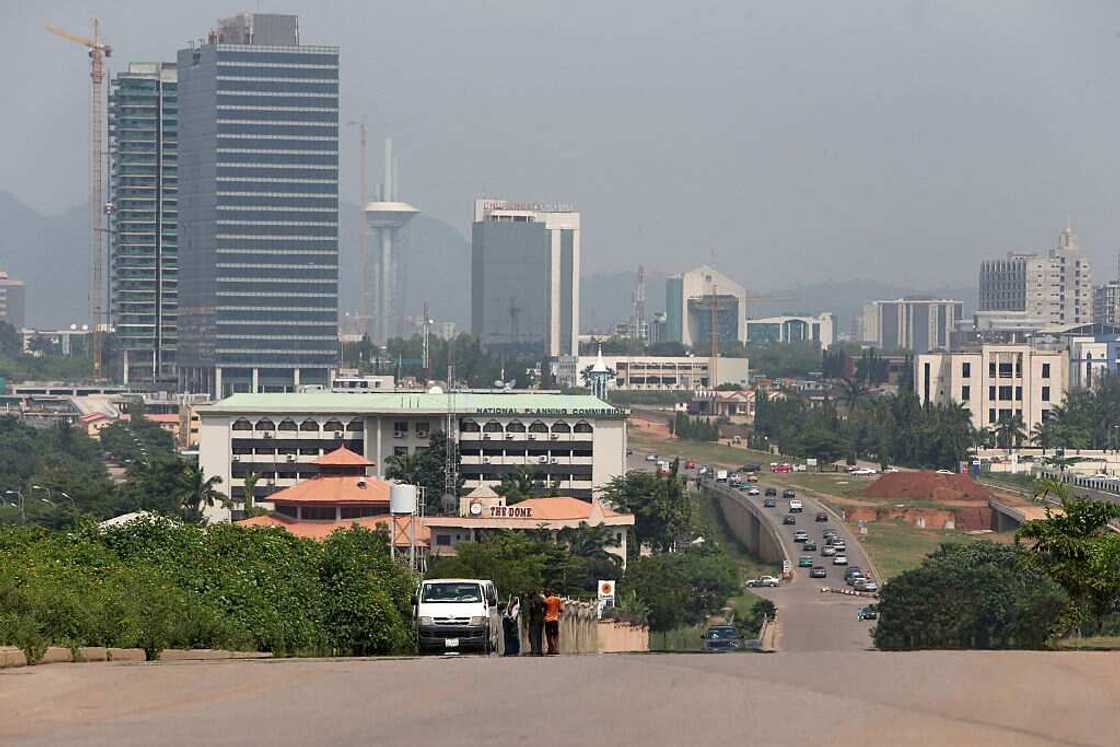
Source: Getty Images
According to Chiaka Orjiako, a business expert, businesses will always flourish in Abuja, the capital city of Nigeria.
Just like Lagos, Abuja is cosmopolitan, where thousands of local and foreign investors steadily streamed to in search of greener pastures.
Abuja is considered one of the wealthy cities in Africa, and this makes it an excellent place to start a business.
Human and material resources are always readily available. Compared to 2015, Abuja is very safe for all business establishments.
The Federal Government Territory Administration (FCTA) recently declared that the Federal government has assisted Abuja traders with multiple fundings in achieving ease of doing business in Abuja.
Strategic Outreach Support (SOS) also provided over N5 million in funding to support market and local women traders in Dutse under Bwari Area Council, Abuja.
Hence, starting a business in Abuja opens a window of connection and financial aid.
Orjiako listed some businesses likely to flourish in Abuja as sales, school bus service, school uniform design/supply, transportation company, agricultural and farm products (including beef/fish/ chicken), building materials, and interior design.
Others are electronics stores, furniture stores, security companies, dog breeding, event hall/tent rentals, and HR services. They also include affordable solar energy for homes, computerised mechanic services, concierge services, souvenir making, event management, delivery services, home tutoring services, and 'haute couture' fashion design services.
3. River State

Source: Getty Images
River State is another attractive destination for business and investment, offering several advantages for entrepreneurs.
The eight-year administration of the immediate past Governor, Nyesom Wike, left rivers with myriad business opportunities, having completed 1000km of roads during his tenure.
Such a good network of roads is advantageous for logistics and distribution businesses.
The presence of numerous oil and gas companies, refineries, and petrochemical industries creates opportunities for businesses that serve these sectors, including logistics, engineering, and supply chain services.
Unlike some parts of the Niger Delta with security concerns, Port Harcourt and other urban areas in Rivers State have seen improved security in recent years.
The state government has various tax incentives and support for agribusiness.
Rivers State is known for its cultural diversity and tourism potential, which can be advantageous for businesses in the hospitality and tourism sectors.
4. Kaduna
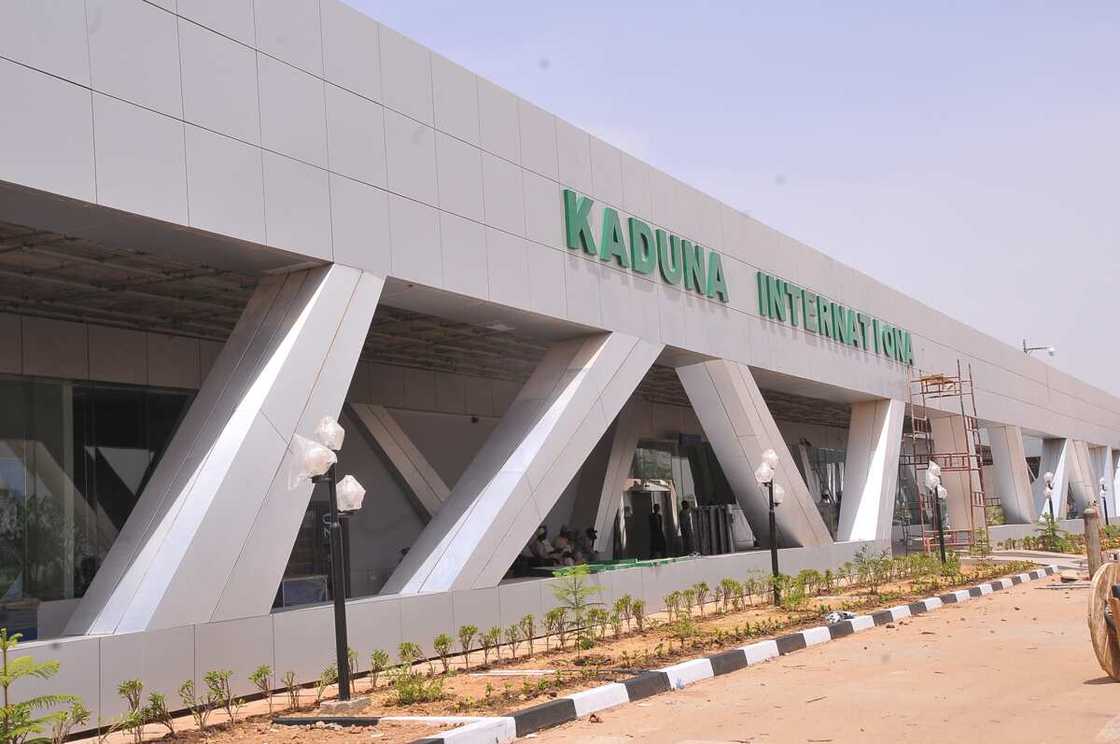
Source: UGC
In 2018, a World Bank report deemed Kaduna as the most improved state for doing business in Nigeria.
The state also ranked Nigeria's third biggest consumer market as its demography provides a massive market for goods and services across all sectors.
The state boasts economic diversity, with opportunities in various sectors. While it has a strong presence in agriculture, particularly the production of crops like maize, sorghum, and ginger, it is also becoming known for its manufacturing and industrial activities, including steel production, cement manufacturing, and textile industries.
The yearly Kaduna Economic and Investment Summit is always greeted by thousands of business owners doing excellently in the state.
The state also has a Kaduna Investment Promotion Agency, which offers a wide range of opportunities to private sector investors in agriculture, manufacturing, mining and tourism, amongst others.
Kaduna is a haven for investors, offering a unique combination of resources, market and business environment rivalled by no other state in Nigeria.
5. Oyo state

Source: Getty Images
Being the capital of the largest state in Nigeria, Undoubtedly, Ibadan has several investment opportunities in sectors such as agriculture, healthcare, education, tourism, and infrastructure development.
The capital still has vast arable land suitable for agriculture and a large population that provides a ready market for agricultural products.
Demographically, data shows that Oyo State is a ready investment market with a landmass and population, giving it the comparative and competitive advantage that a few states in Nigeria have.
The sizeable consumer base provides opportunities for businesses to tap into diverse markets, ranging from retail and services to manufacturing and agriculture.
The state government has the Bureau of Public Procurement, a standalone agency, and appointed a Director General who used to be a private sector player. One of the remits of this agency is to create opportunities for SMEs.
Oyo State has created a conducive environment for the private sector to thrive—one of the factors. The state attracted Foreign Direct Investment (FDI) of $65 million in 2022 alone.
The state's governor, Seyi Makinde, has worked on Akufo, Eruwa and Ilora Farm Settlements to convert them into agribusiness industrial hubs.
The city boasts rich Feldspar, Talc, Marble, Pyraiba, Gold, Tourmaline, Quartz, Beryl and Granite deposits. Ibadan City has an 11 MW Independent Power Project (IPP).
Finally, Ibadan's proximity to Lagos, Nigeria's economic hub, offers businesses the advantage of accessing a significant market and connecting with suppliers and clients in Lagos.

Read also
Fuel subsidy: Analyst reacts as Yahaya Bello declares free education in Kogi amid economic hardship
6. Kano State

Source: Getty Images
Kano state, home of Nigeria's two wealthiest men, Aliko Dangote and Abdulsamad Rabiu, is Nigeria's second most industrialised region and a prominent centre for commerce within the nation and across Sub-Saharan Africa.
It is also a go-to place for cheap labour, an accommodating environment for business, and a friendly tax.
The infrastructure, diversity, accessibility, availability of raw materials for industrial production, and historical relevance of Kano State makes it one of the best places to do business in Nigeria.
Kano also offers a large and relatively affordable labour force, making it an attractive option for businesses looking to control operational costs.
Many banks and large multinational organisations maintain a significant presence in Kano, attesting to its importance as a thriving business hub.
The state's primary revenue sources are rooted in the agricultural sector, particularly in producing groundnuts and cotton.
The service industry, commerce, and trade sectors substantially contribute to the state's economic prosperity.
Kano State is widely celebrated as a major producer of hides, skins, cotton, chili pepper, garlic, and gum Arabic.
The state has made a name for itself in producing and selling various crafts, including gold, Arabic jewellery, footwear, plastics, cosmetics, ceramics, dairy products, vegetable oil, pharmaceuticals, and food and beverages.
This diverse array of economic activities underlines Kano's significance as an industrial and commercial powerhouse in Nigeria.
7. Ogun State
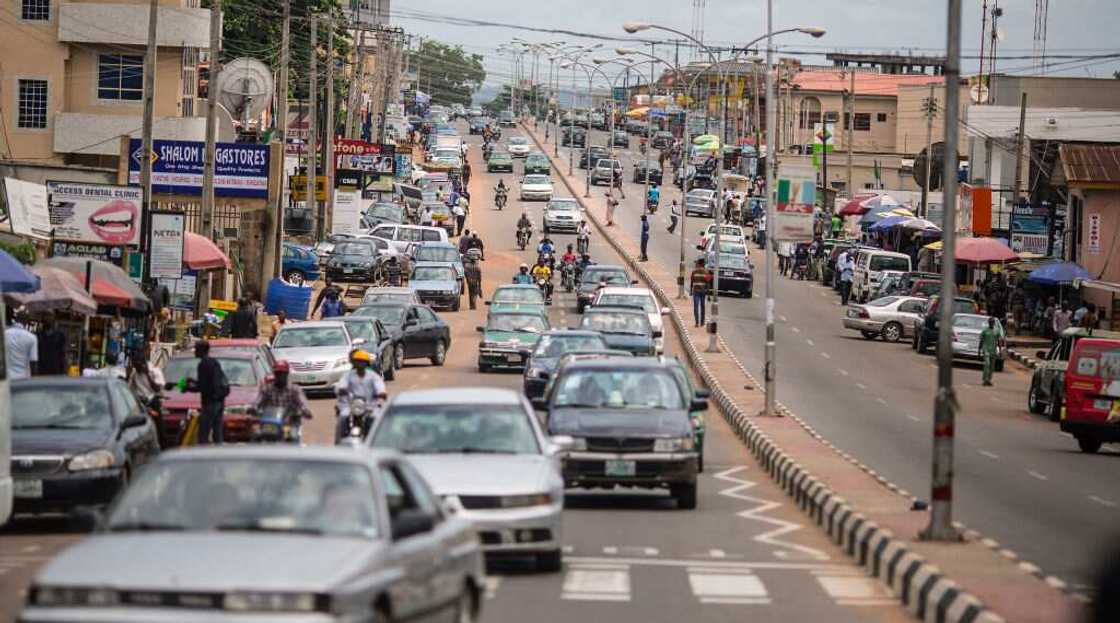
Source: Facebook
Ogun state is close to Lagos state, Nigeria's commercial and economic capital, providing businesses easy access to a large consumer market and transport links.
Its nearness to Lagos allows businesses to tap into Lagos ' Lagos's economic opportunities and infrastructure advantages while often benefiting from lower operational costs.
Abeokuta is home to many manufacturing and industrial companies, including automotive, cement, and food processing industries. This concentration of industries creates opportunities for business synergies and support services.
Ogun State engages in a transparent tax system with a quarterly publication of reports.
The Ogun State government has implemented various initiatives to promote investment and business development.
Ogun State is home to a skilled labour force, and the presence of higher education institutions, including universities, contributes to a pool of well-educated professionals and workers.
The state has seen improved security conditions in recent years, creating a more conducive environment for business operations.
8. Gombe State

Source: Getty Images
According to the Subnational Ease of Doing Business (EoDB) Report, Gombe state tops the list with an EoDB score of 7.15.
The state's performance is significant for several reasons, including its (3rd) position in infrastructure, transparency and accessibility of information (2nd), skills, and labour (9th).
It is also praised for its secure and stable environment, ranked (1st), in regulatory environment, ranked (5th) and (13th) in economic opportunity. These rankings demonstrate Gombe's dedication to fostering a business-friendly climate.
9. Akwa Ibom
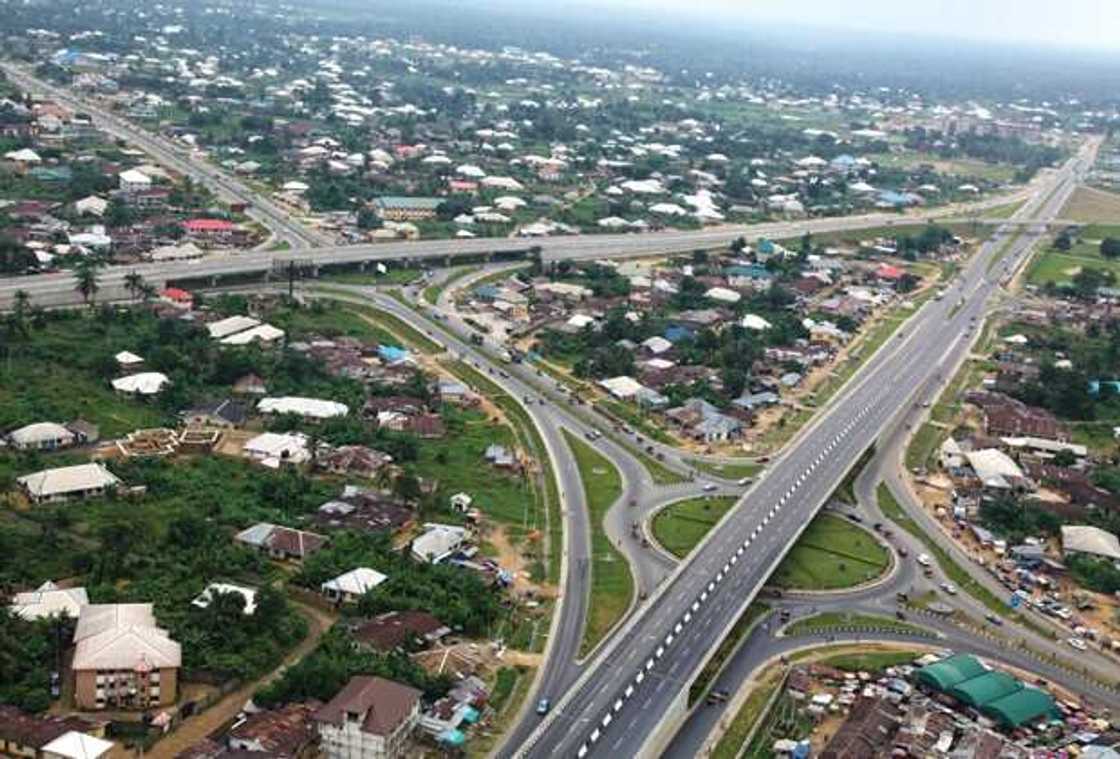
Source: Facebook
The transformation in the security situation that has taken place in Akwa Ibom State in the last few years has been quite significant.
The state is unarguably one of the country's most peaceful and secure places to live, if not number one on the list.
One cannot talk about the conducive atmosphere for doing business in Akwa Ibom without mentioning the government's incentive to enhance the ease of doing business.
Among numerous incentives is an initiative that has accelerated the issuance process of Certificate of Occupancy (C of O) for investors wishing to set up businesses in the state – the first of its kind.
Among the areas potential investors may find attractive is the futuristic Ibom Industrial City, which occupies 14,517 hectares of land across four local government areas. Designed to be a national and regional economic hub, the City will accommodate several high-profile industries, including a refinery, petrochemical and fertiliser plants, power plant and facilities for manufacturing several products.

Read also
Dangote, Ibru, other family-owned businesses contribute $200bn to Nigeria's economy annually
There is also the Ibom Deep Sea Port, which Vice President Yemi Osinbajo said would soon become operational.
The port occupies 2,565 hectares of land across three local government areas and will provide capacity for Nigeria's transhipment facility for the West and Central African regions. It would give coastal access to a railway line to the Victor Attah International Airport. It would also benefit investors within and outside the state who may be interested in marine business, petrochemicals, auto plants, and power plants.
Tourism and hospitality are areas for which Akwa Ibom is well known in Nigeria. Investors are already taking advantage of the friendly climate to invest massively in hospitality, considering the number of hotels that have sprung up in the last few years.
A pointer to the attraction hospitality holds for investors in Akwa Ibom is the decision of the Kenya-based Icon Group Hotel Africa, a household name in hospitality on the continent, to partner with the state government in the running of the Ibom Icon Hotel and Resorts, the leading hospitality facility in the state.

Read also
Cardoso's CBN to withdraw financial support for farmers, others after disbursing N9.7trn in three years
10. Anambra state
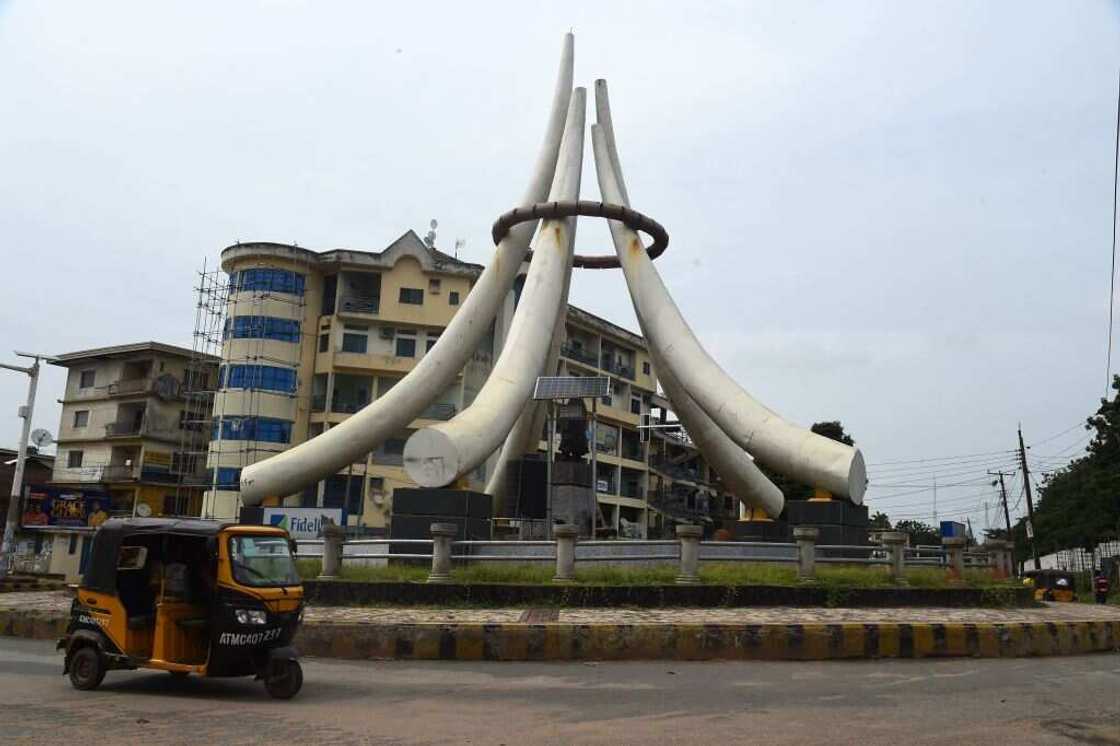
Source: Getty Images
One of the best cities in Nigeria for business is Onitsha, a bustling commercial city in southeastern Nigeria that offers a range of business prospects due to its strategic location, vibrant trade, and diverse economic activities.
Onitsha is renowned as a central trading hub in Nigeria, particularly for wholesale and retail trade.
Opportunities abound for entrepreneurs in various sectors, including import/export, retail, and distribution.
The Onitsha Main Market is one of the largest and busiest markets in West Africa, serving as a focal point for various commercial activities.
The city has a growing manufacturing sector, with businesses in food processing, garment production, plastics, and other industries.
Entrepreneurs in these sectors can benefit from the city's proximity to local and regional markets.
Expert speaks
Providing more context Amamchukwu OKAFOR, a Senior Consultant at Native Insight, said:
"Business owners and investors must consider two most important factors: access to market and access to supplies.
"Access to markets for their goods and services, and Access to supplies for raw materials or inventory. If you can stay in a location where you have easy access to buy goods or inputs for your services and can also reach markets where you can sell to buys or consumers, then you have found a sweet spot. The optimal point is one where the distance from market for goods/services equals distance to supplies.
"These factors already encompass, road network, population, and urbanization. Other considerations would include (in)security, electricity, tax laws, labour, and government commitment in the sector of interest. For foreign investors, our major challenge has been repatriation of profits or getting out their investments in dollars.
"This singular issue has made investors extra cautious with putting their funds in Nigeria."
Source: Legit.ng










